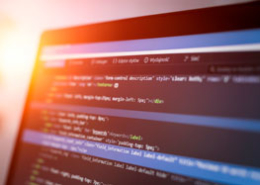RIA: Democratizating the regulatory process
The Bill PL 6621/2016 implements s a more democratic and transparent State.
In the latest weeks was installed in the House of Representatives a Special Committee dedicated to debate the Bill (PL 6621/2016) that has by goal the social control of regulatory agencies. Such social control implements the Regulatory Impact Analyses as a instrument that will allow a wider society participation in the creation of regulatory rules. Anyway, a broader application of RIA seems to be necessary. The government antecipated itself in this debate, signaling that a parallel field of discussion will run during the debate of the Bill
It is clear that including the RIA as presented by the Bill PL 6621/2016 implements s a more democratic and transparent State, although it perceives narrowly the regulatory agencies as a State source of such regulatory norms. Notwithstanding the agencies were created aimed at generating a regulatory botton to public services, whose implementation was delegated to privet agents, it is also known that the economy coordination tools are not restricted to the role played by the agencies. Therefore, if the purpose of the RIA is to induce more transparency and social participation to the process, then it is important that the Bill do not leave itself restrained just for the agencies, but that it also reaches any regulatory process regardless of the State body responsible for it.
In last February, the Civil Office of the President of the Republic published its “RIA Proceedings Guidelines”. The Guidelines counted on the participation of the Ministry of the Economy, Ministry of Planning, and INMETRO (the Brazilian equivalent to National Institute of Standards and Technology – NIST). Based on these studies and on international publications, especially those published byOECD, the Guidelines focuses on the methodology as a means of creating an efficient regulatory standard. In this way, the identification of the problem, the people who will be affected by these regulation and the goals to be achieved are the first step to which it may be possible to describe and analyze alternatives and their impacts, as well as compare them to decide which one may be the most efficient among them.
By the other hand, the Bill (PL 6621/2016) has focused on institutionalizing the implementation of RIA, letting the debate on content and methodology to be elaborated by Regulation, indicating that its “recipe” will be defined by the Executive . The Guidelines may be a tip of the way the government intends to conduct this debate. Therefore, the Project has focused more one to implementing the decision process of the agencies, defining deadlines for advertising information on the creation of regulatory rules, organization of inspection and control in the same way as the definition of indicators to the relationship of the agencies with the Brazilian Antitrust Framework, Consumer Protection Advocacy Organizations, Environmental Protection Institutions and States, Municipality and Federal District and other types of federal agencies.
The debate for the RIA implementation seems that came to stay. Even though we are in the run for elections, The Bill should have a fastened discussion. Yet, adjustments still need to be made, and more than ever, the participation of the society will make all the difference for the RIA to take the Brazilian State to a new stage of regulatory production.
About The Author
Category: [xyz-ips snippet=”Categoria”]
[xyz-ips snippet=”Tag”]
Posted in: [xyz-ips snippet=”Data”]
See also
 https://correiadasilva.com.br/wp-content/uploads/2021/04/citacao-via-whatsapp-1.jpg
667
1000
Correia da Silva
https://correiadasilva.com.br/wp-content/uploads/2019/07/Logo-csa.png
Correia da Silva2021-04-20 08:00:412021-04-20 06:44:00Quote Made by WhatsApp
https://correiadasilva.com.br/wp-content/uploads/2021/04/citacao-via-whatsapp-1.jpg
667
1000
Correia da Silva
https://correiadasilva.com.br/wp-content/uploads/2019/07/Logo-csa.png
Correia da Silva2021-04-20 08:00:412021-04-20 06:44:00Quote Made by WhatsApp https://correiadasilva.com.br/wp-content/uploads/2020/03/imagem-blog-3.jpg
187
295
Correia da Silva
https://correiadasilva.com.br/wp-content/uploads/2019/07/Logo-csa.png
Correia da Silva2020-03-04 14:52:112020-03-04 14:52:11Federal taxation on remittance abroad in the acquisition of a software license for commercialization or distribution
https://correiadasilva.com.br/wp-content/uploads/2020/03/imagem-blog-3.jpg
187
295
Correia da Silva
https://correiadasilva.com.br/wp-content/uploads/2019/07/Logo-csa.png
Correia da Silva2020-03-04 14:52:112020-03-04 14:52:11Federal taxation on remittance abroad in the acquisition of a software license for commercialization or distribution https://correiadasilva.com.br/wp-content/uploads/2020/01/imagem-blog-37.jpg
187
295
Correia da Silva
https://correiadasilva.com.br/wp-content/uploads/2019/07/Logo-csa.png
Correia da Silva2020-01-29 18:25:252020-01-29 18:25:25The Attorney General’s Office of the National Treasury – PGFN, regulates the disclosure of the list of debtors
https://correiadasilva.com.br/wp-content/uploads/2020/01/imagem-blog-37.jpg
187
295
Correia da Silva
https://correiadasilva.com.br/wp-content/uploads/2019/07/Logo-csa.png
Correia da Silva2020-01-29 18:25:252020-01-29 18:25:25The Attorney General’s Office of the National Treasury – PGFN, regulates the disclosure of the list of debtors https://correiadasilva.com.br/wp-content/uploads/2020/01/imagem-blog-36.jpg
187
295
Correia da Silva
https://correiadasilva.com.br/wp-content/uploads/2019/07/Logo-csa.png
Correia da Silva2020-01-28 15:24:382020-01-28 15:25:40Full payment of the tax debt extinguishes the punishment of the accused of tax evasion crime
https://correiadasilva.com.br/wp-content/uploads/2020/01/imagem-blog-36.jpg
187
295
Correia da Silva
https://correiadasilva.com.br/wp-content/uploads/2019/07/Logo-csa.png
Correia da Silva2020-01-28 15:24:382020-01-28 15:25:40Full payment of the tax debt extinguishes the punishment of the accused of tax evasion crime
